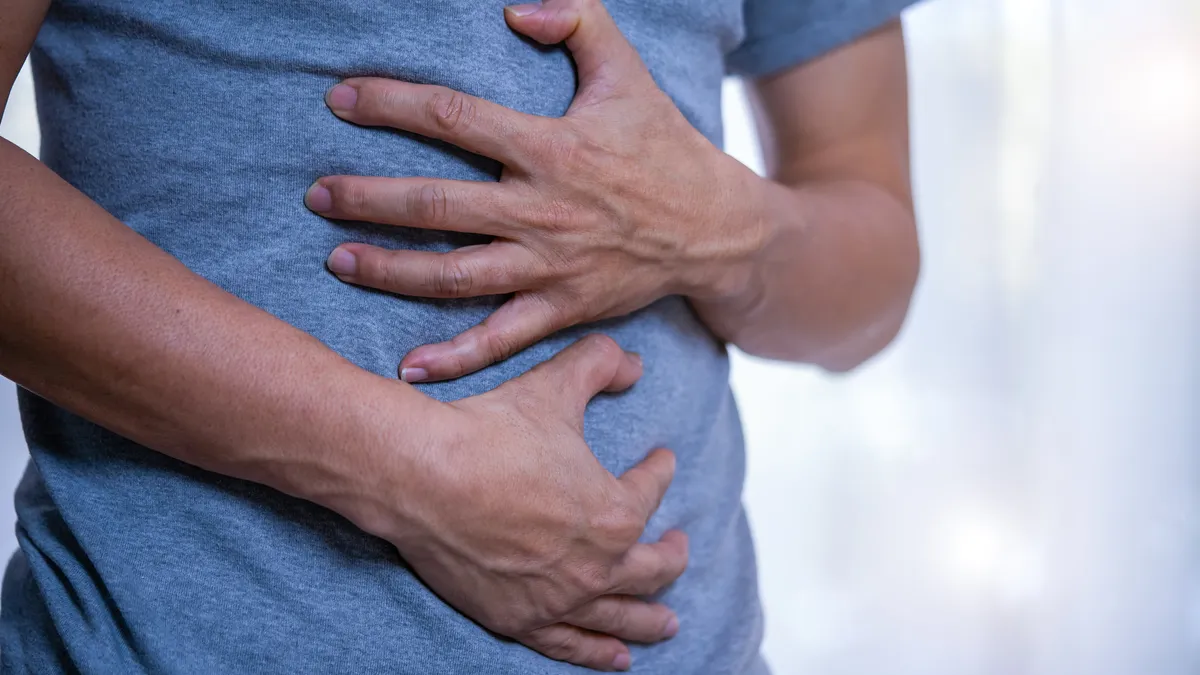When we speak about the adverse health consequences of alcohol, our minds typically go straight to the most infamous afflictions: liver disease, alcohol dependence, and the increased risk of cancers and cardiovascular disease.
However, one less-discussed yet equally significant impact of excessive alcohol consumption is alcohol diarrhea. As a topic of much discomfort and often embarrassment, alcohol diarrhea remains largely in the shadows, yet it is a common and problematic symptom that many heavy drinkers experience.
Alcohol diarrhea is a common yet relatively under-discussed side effect of excessive alcohol consumption. Defined by frequent, loose bowel movements following the intake of alcohol, it’s uncomfortable, to say the least, and in some cases, potentially health-threatening. This article delves into what alcohol diarrhea is, what causes it, and how it can be prevented and cured, along with some useful tips for managing and avoiding this condition.
Table of Contents
ToggleAn In-depth Exploration of Alcohol Diarrhea

Alcohol, an integral part of many cultures and social rituals, is often enjoyed responsibly with no significant adverse health effects. However, when consumption crosses the line from moderation to excess, the body’s digestive system takes the hit. Specifically, heavy and consistent drinking can significantly disrupt normal digestion and absorption processes in the gut, leading to a range of gastrointestinal symptoms, including diarrhea.
To better comprehend alcohol diarrhea, understanding how alcohol interacts with our body, particularly our digestive system, is extremely important. Being a diuretic, alcohol causes an increase in the production of urine. A higher intake of alcohol means that the kidneys have to work harder to filter out the extra liquid, which is then expelled from the body as urine.
In the process, this increased urine production also speeds up the loss of fluids and electrolytes from the body. A loss of these important minerals, coupled with the reduced fluid volume in the body, often leads to dehydration. Initial dehydration symptoms can actually make stools harder because of the reduced water content in the digestive tract. In simple terms, the body tries to conserve water by absorbing more from the intestines, leading to harder, drier stools.
Alcohol simultaneously irritates the lining of the stomach and intestines, a phenomenon known as gastrointestinal irritation. This irritation can inflame the stomach lining, causing a condition known as gastritis, which can result in pain, vomiting, and, you guessed it, diarrhea.
In a normal digestive process, the stomach produces gastric acid that is responsible for killing bacteria and breaking the food down to get digested. Pancreatic secretions, on the other hand, contain enzymes that further assist in digestion once food reaches the small intestine.
When alcohol enters the system, it amplifies the production of these acids and enzymes, and this overproduction can cause the food and waste to move more quickly through the digestive tract.
Furthermore, chronic heavy drinking can lead to more severe health issues, including alcoholic gastritis and pancreatitis, both of which can contribute to chronic diarrhea and other digestive problems.
The Causes of Alcohol Diarrhea

Alcohol diarrhea is not just an inconvenient after-effect of a night out but an indication of the gastrointestinal tract’s distress and a precursor to more serious health complications if left unchecked. It is essentially the body’s alarm system, an urgent plea for moderation and consideration, which often goes unheeded. To effectively treat alcohol diarrhea, let’s discuss in detail its underlying causes.
Alcohol’s Diuretic Effect
As mentioned earlier, alcohol is a potent diuretic. It fosters urine production in the body, pushing the kidneys to expel more fluids than they normally would. This escalated fluid elimination often culminates in dehydration, a state where the body lacks adequate water to carry out its normal functions.
Gastrointestinal Irritation
When alcohol interacts with the gastrointestinal tract, it induces inflammation and enhances the production of stomach acids and digestive enzymes. This excessive production can accelerate the digestion process, often leading to the rapid transit of partially digested food and water through the intestines, ultimately resulting in loose, watery stools, or diarrhea.
Effects on Gut Flora
The human gut is home to a varied variety of bacteria known as the gut microbiome. These microbes are important in many aspects of health, including as digestion, immunity, and even mental wellness. A healthy gut microbiota is one of the most important components of the body for maintaining adequate nutrient absorption and digestion, as well as overall good health.
Regular alcohol consumption can disrupt this finely balanced ecosystem, causing an imbalance known as dysbiosis. Excessive alcohol consumption, however, can disrupt this delicate balance, leading to a condition known as dysbiosis. This state of imbalance triggers inflammation and increases intestinal permeability, commonly known as “leaky gut,” further exacerbating diarrhea.
Moreover, certain alcohol-related disruptions can promote the growth of harmful bacteria, further contributing to gastrointestinal distress.
Alcohol Malabsorption
Some people can’t easily digest Beer and wine, as these are rich in carbohydrates. In such cases, the body struggles to break down and absorb these substances, a condition known as malabsorption. Symptoms of malabsorption include bloating, gas, and, significantly, diarrhea.
This is often observed in individuals with gastrointestinal conditions such as Irritable Bowel Syndrome (IBS) or celiac disease, where their system is already sensitized to certain food components.
Proactive Measures Preventing Alcohol Diarrhea

To maintain a healthy digestive system and minimize the discomfort of alcohol diarrhea, you can consider the following preventive and proactive measures:
1. Alcohol Consumption in Moderation
Key to preventing alcohol diarrhea is moderation. Overconsumption of alcohol not only causes diarrhea, nausea, and vomiting but can also contribute to longer-term health issues, such as liver disease and certain cancers. The Centers for Disease Control and Prevention (CDC) recommends sensible limits on alcohol intake – for women, the ideal amount is one drink, and for men, the limit is up to two drinks per day.
2. Stay Hydrated
Staying adequately hydrated is essential when consuming alcoholic beverages. Hydration helps counteract the dehydration effects of alcohol, one of the primary causes of diarrhea. So, make it a point to drink water or other non-alcoholic fluids alongside your alcoholic beverage. A good rule of thumb is to alternate between alcoholic and non-alcoholic drinks. This practice keeps you hydrated and helps to limit your alcohol intake.
3. Eat Before Drinking
Drinking alcohol on an empty stomach might increase the likelihood of diarrhea and other unpleasant symptoms. This is because alcohol might more easily upset an empty digestive tract. Eating a nutritious meal before consuming alcohol slows the absorption of alcohol into your circulation, lowering its immediate effect and the risk of diarrhea. Opt for foods rich in complex carbs and proteins. These will take more time to digest, helping to moderate the body’s alcohol absorption rate.
4. Choose Alcoholic Beverages Wisely
Sugary alcoholic beverages, in addition to wine and beer, can also trigger an upset stomach and are more likely to lead to diarrhea. If your system is easily prone to diarrhea by alcohol, consider opting for drinks lower in sugar and carbs. Clear spirits, for example, tend to be lower in these components. However, always keep in mind that quantity also matters besides quality.
Treating Alcohol Diarrhea
There are a few simple ways to treat alcohol diarrhea, such as:
- Rehydrate – The body loses fluids and electrolytes during episodes of diarrhea. It’s important to replenish these by drinking water, herbal teas, or rehydration solutions.
- Eat a BRAT Diet – BRAT stands for Bananas, Rice, Applesauce, and Toast. These are bland foods that can help bulk up the stool and reduce the severity of diarrhea.
- Avoid Certain Foods – Spicy, fatty, or fried foods can exacerbate diarrhea. Instead, opt for easily digestible, high-fiber foods to help normalize your bowel movements.
- OTC Medication – Over-the-counter medications like loperamide (Imodium) are known to help in slowing down bowel movements and relieve diarrhea. Don’t forget to consult with your healthcare professional before you choose to use these.
Additional Tips
- If you’re drinking alcohol, make sure to pace yourself. Drinking too fast, without any breaks, can significantly increase the risk of alcohol diarrhea.
- Be cautious about mixing different types of alcohol, as this can further irritate the digestive system.
- Avoid alcohol altogether if you’re recovering from a gastrointestinal infection, as it can delay the healing process.
- Remember, everyone’s body responds differently to alcohol. Listen to your body and adjust your alcohol intake accordingly.
Alcohol diarrhea serves as a distress call from the body, a signal of the significant disturbances alcohol can inflict on our digestive system. It is essential to understand and address this issue to safeguard our health, regardless of how uncomfortable the subject is. Ultimately, responsible consumption and awareness of such adverse effects are key to maintaining our well-being and ensuring that alcohol’s social role doesn’t transform into a medical problem.
Conclusion
Alcohol diarrhea can be an unpleasant side effect of alcohol consumption, but with understanding, moderation, and good habits, it can be effectively managed and prevented. It’s always important to drink responsibly, prioritizing your health and well-being.
If alcohol diarrhea persists or if you have any concerns about your alcohol consumption, seek professional medical advice. Remember, your health comes first. Even in times of celebration and relaxation, it’s essential to make choices that respect and promote your body’s functionality and vitality.

I am a passionate beer connoisseur with a deep appreciation for the art and science of brewing. With years of experience tasting and evaluating various beers, I love to share my opinions and insights with others and I am always eager to engage in lively discussions about my favorite beverage.
















